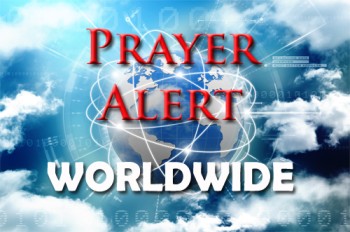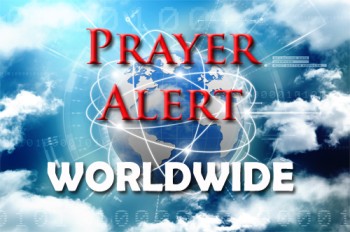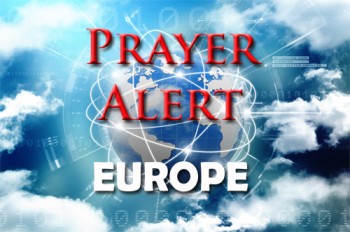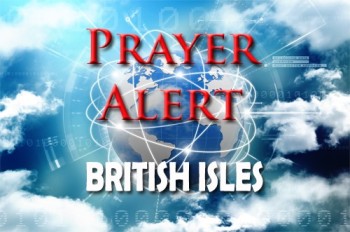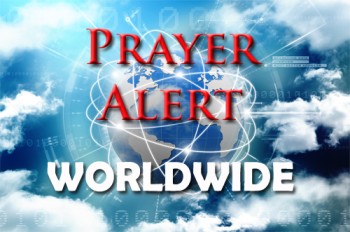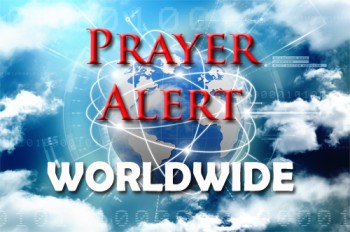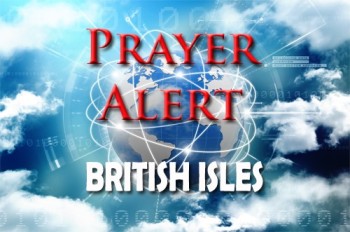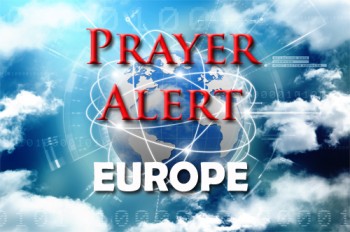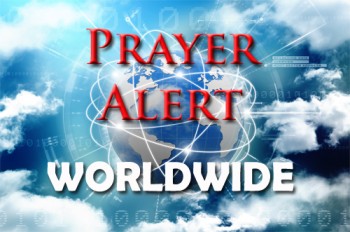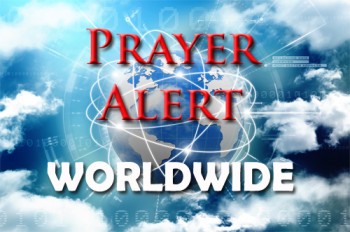Displaying items by tag: protesters
Brazil: hundreds of Indigenous protesters at COP30 demand real protection
On 11 November hundreds of Indigenous activists stormed the UN COP30 climate summit in Belém, demanding real protection for their lands and rights amid growing frustration over government inaction. The protests, led by Amazonian communities, erupted as president Luiz Inácio Lula da Silva promoted his administration’s commitment to Indigenous inclusion - claims protesters say ring hollow while oil drilling, logging, and mining continue to threaten the rainforest. ‘We can’t eat money’, said Gilmar of the Tupinamba community, voicing anger at the summit’s focus on climate finance over preservation. The demonstrations followed the arrival of the Yaku Mama protest flotilla, which sailed over two thousand miles to call attention to Indigenous leadership in environmental stewardship. Despite Lula’s rhetoric, Brazil’s state oil company has just received approval to begin exploratory offshore drilling near the Amazon’s mouth. This year’s meeting is the first to take place since the International Court of Justice ruled that countries must meet their climate obligations and that failing to do so could violate international law. Note: the four nations responsible for almost 50% of global pollution (Russia, China, India, and the USA) are not even attending COP30. The conference is a major focus for prayer, as churches become more and more aware of the climate crisis. For a link to the John Stott lecture on 20 November, which will focus on the challenges which the world is facing and a Christian response, see
Bangladesh: did Sheikh Hasina authorise killing protesters?
A leaked audio recording verified by BBC Eye reveals that former prime minister Sheikh Hasina authorised lethal force against student-led protesters during last year’s deadly unrest. In the recording, Hasina is heard instructing security forces to use lethal weapons and to shoot wherever protesters are found. The protests, initially sparked by opposition to civil service job quotas, escalated into a mass movement that led to Hasina's ousting in July 2024, after fifteen years in power. According to UN investigators, up to 1,400 people were killed in what became Bangladesh’s deadliest violence since its 1971 independence war. The leaked call, which has been authenticated by audio forensics experts, occurred on 18 July, as outrage grew over video evidence of police killings. Hasina, now in exile in India, faces charges of crimes against humanity in a special tribunal. The recording is considered a key piece of evidence in the proceedings.
Greece: nationwide general strike
On 20 November a nationwide general strike disrupted Greece as workers demanded better pay and improved living standards. Doctors, teachers, transport workers, and trade union members were among those who joined the protest. In Athens, demonstrators chanted for workers' rights and decried the high cost of living, with inflation in energy, food, and housing outpacing salary increases. The strike reflects frustration over the lingering effects of Greece’s 2009–2018 debt crisis, which required severe wage and pension cuts in exchange for €280 billion in bailouts. Though the economy has rebounded, wages remain low compared to the EU average, and many workers report a 50% reduction in purchasing power. The government has raised the minimum wage four times, now at €830, with a target of €950 by 2027, but protesters argue these measures fall short. The strike coincides with the submission of Greece's 2025 budget, which includes plans for modest economic growth and increased spending on wages and pensions.
Protesters arrested after spraying Stonehenge and aeroplanes orange
Two Just Stop Oil protesters were arrested after spraying orange paint on Stonehenge, just before the summer solstice celebrations. The incident was widely condemned by political leaders. Rishi Sunak, calling it a 'disgraceful act of vandalism', urged condemnation from anyone associated with the group. Sir Keir Starmer and Sir Ed Davey also criticised the act, calling for strict legal action. Despite the vandalism, the site remains open to the public. Just Stop Oil, which has been demanding a treaty to phase out fossil fuels by 2030, defended the protest as a call to action against the ecological crisis. In another incident, two more protesters were arrested after spraying several planes orange at a private airport: see
Global: fuel protests in 90 countries
While governments look for solutions to their countries' economic crises, the people in 90 countries protest. Some pay a heavy cost. In nine months, over eighty people have died in protests over the cost of fuel, in at least nine different countries. Antarctica is the only continent free of fuel protests. Indonesia has seen 600+ protests over petrol this year: in 2021 there were 19. Italy had 200+ in eight months - 2 last year. Ecuador experienced 1,000+ protests over fuel in June alone. Most surprising is that protests are occurring in places not prone to protests. High costs of living are driving people to protest against crippling prices. Fuel costs affect much of daily life - personal travel, transportation of goods, energy for electricity and heating. People are demanding that petrol be made more affordable and available. They are sitting in peaceful protests or attacking governments.
Sri Lanka: more anti-government unrest
We prayed for Sri Lanka in April.l Please continue praying as protesters across the country are torching houses and businesses belonging to various ministers and MPs belonging to the ruling Rajapaksa family. During this week’s violence and looting PM Mahinda Rajapaksa resigned, and a luxury holiday resort owned by his son was torched by a mob. Over 200 people were injured and eight murdered in three days. The protesters want President Gotabaya Rajapaksa, Mahinda’s brother, to leave office. He has grossly mismanaged the economy, and they insist he must stand aside. In his first national address since protests began last month, he offered to cede some of the president's power to parliament but ignored calls to resign. Security forces are shooting law-breakers and looters on sight, and thousands of police and riot squads are patrolling the streets with tear gas and water cannons.
Anti-vaccine protesters
‘Sovereign citizen defence’ uses obsolete ancient law to challenge Covid regulations. They distribute fake legal documents to teachers, parents, and health workers outside schools and hospitals, accusing the Government of ‘vaccine genocide’. ‘Sovereign citizens' and ‘freemen on the land’ wrongly believe they possess legal power to bring politicians, civil servants and scientists before ‘common law courts’, claiming Covid restrictions and vaccinations are illegal. Now a newly-formed group, ‘Alpha Men Assemble’ (AMA), combines anti-vaccine and sovereign citizen beliefs. It trains members in ‘direct action’ in breaking through police lines, marching formations and sparring. They post training sessions online for UK members. Believing they are immune from government rules, they have violently confronted police in Australia and the US. UK’s AMA only started in December, but numbers swelled to 7,000 after a recent training session for recruits.
Pro-Palestinian protests turn anti-Semitic
Pro-Palestinian demonstrations across Europe have descended into orgies of anti-Semitism by anarchists, hard-left anti-Israel activists, and immigrants from Muslim countries, chanting 'Allahu Akbar'. All are opposed to Israeli action in Gaza and call for the destruction of Israel and death to Jews. This anti-Semitism is a testament to the failure of European multiculturalism which is making Jewish life in Europe increasingly unviable. On 13 May 3,500+ protesters marched across Berlin with anti-Semitic banners calling for total elimination of Israel and many similar sentiments while chanting ‘Bomb Tel Aviv!’ 1,000 police broke up the demonstrations. 93 officers were injured. Bild newspaper stated, ‘Open, disgusting hatred of Jews and Israel is also hatred of our free, tolerant democracy’. 200 highly aggressive people brandishing Palestinian and Turkish flags and shouting anti-Semitic slurs were removed from outside a synagogue in Gelsenkirchen.
Myanmar: murder and airstrikes
On 27 March security forces killed over fifty protesters who defied a warning that they could be shot ‘in the head and back’ if they came out while the country's generals celebrated Armed Forces Day. ‘Today is a day of shame for the armed forces,’ said Dr Sasa, a spokesman for the anti-junta group of deposed lawmakers. Local media reported that around 3,000 people from Karen state have left the country and crossed the border into Thailand to escape the violence. Airstrikes that sent villagers fleeing into the jungle show the Myanmar situation is ‘much worse’, a humanitarian worker said. At least 114 people were killed by security forces on 29 March, including a five-year-old boy and a 13-year-old girl. Despite the bloodshed, protesters returned to the streets. Citizens are living amid increasing violence. People are being beaten and shot; now they face multiple airstrikes. Myanmar has not had airstrikes there for over twenty years.
Israel: peace plan protests
Palestinian terror groups Hamas and Islamic Jihad have rejected Donald Trump’s peace plan which was unveiled on 28 January. Many Palestinians protested in the West Bank, and the US embassy warned of potential terror attacks. The plan calls for a two-state solution with detailed maps of territory showing territory currently under Palestinian control more than doubled, while recognising Israeli sovereignty over major West Bank settlement blocs. Palestine’s president, Mahmoud Abbas, had a rare phone call with Hamas head Ismail Haniyeh in which they agreed to work together against the plan, even though Abbas’s Fatah faction has been at loggerheads with Hamas for over a decade. Palestinian demonstrators at the entrance to Ramallah City burnt tyres, chanting, ‘We will resist the occupier and we announce our rejection of the deal of the century. We won’t accept any substitute for Jerusalem as the capital of the Palestinian state.’ Trump’s plan enshrines Jerusalem as Israel’s ‘undivided’ capital.
